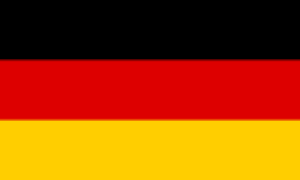German

"Die Grenzen meiner Sprache bedeuten die Grenzen meiner Welt.”
“The limits of my language are the limits of my world.” Ludwig Wittgenstein
In an increasingly globalised world, learning German gives students access to the language and culture of three European countries: Germany, Austria and Switzerland. German has the largest number of native speakers in the European Union and is in the top ten most spoken languages in the world. As well as introducing students to the language of Einstein, Mozart, Beethoven, Freud and Marx; learning German offers numerous career opportunities, such as engineering, law, business and finance. Germany has the strongest and biggest economy in Europe and the fourth biggest in the world. As the UK leaves the European Union, knowledge of German will be increasingly useful for careers in business and more and more sought after by employers.
In lessons, we aim to share our own passion for the German language and culture with our students and encourage them to use the language as much as possible in lessons.
Key stage 3 content
In years 7 and 8, students of German cover 11 units and are assessed at the end of each unit.
They receive homework at least once a week (this could be in the form of vocabulary learning or written tasks). Lessons focus on the four key skills of listening, reading, speaking and writing but also include lots of games, songs and challenges. To develop children’s cultural knowledge, teachers use authentic materials for example video clips, films, maps etc. See below for the content covered each term.
Year 7: Students have 3 lessons over two weeks.
|
|
Autumn |
Spring |
Summer |
|
Year 7 |
Carousel Me and My World |
Family and Pets Free Time |
School Daily Routine |
Year 8: Students have 2 lessons a week.
|
|
Autumn |
Spring |
Summer |
|
Year 8 |
Media Food & Drink |
Health & Fitness Work |
Town Holidays |
Students build on the knowledge acquired in Year 7 and work on the skills needed for the GCSE course. Amongst other things, they learn how to talk about where they live, comparing it to German towns and cities, to use the past and future tenses, and to describe their holidays.
Outside the classroom
-
Trips are run for GCSE and A Level students. Students gain first-hand experience of the language and culture of a German-speaking country. Past destinations have included: Berlin, Munich, Salzburg and Freiburg. We have also run cross-curricular trips with the French department (to Freiburg, Strasbourg and Basel) and with Humanities (to Berlin and Krakow, including a visit to Auschwitz.) The most recent trip was to Berlin, where students learnt about the culture and history of Germany’s capital and visited Berlin’s various attractions such as Checkpoint Charlie, The TV Tower and The Olympic Stadium.
-
Enrichment Day, where students take part in curriculum-related activities, enabling them to have different experiences in a variety of contexts. On the last enrichment day, students did activities such as watching and discussing a German film and cooking a traditional German recipe: Apfelpfannkuchen (Apple Pancakes).
Progression pathways and careers
Languages can open all sorts of doors for you in your future career, from teaching and interpreting, through to enhancing careers, such as journalism, the arts, law and the business world. The ability to speak a language offers an exciting range of travel opportunities at school, university and the world of work.
Please also note that Modern Language GCSEs now form part of the recognised English Baccalaureate (EBacc) and a GCSE language is required for entry to some of the best universities, even for non-language courses.
Languages are also useful for careers in travel and tourism, Business, Finance, Media or any other career that involves travel.
Useful links
https://www.aqa.org.uk/subjects/languages/gcse/german-8668/specification-at-a-glance
Mfl Sunderland Schools – www.lightbulblanguages.co.uk
Contact
Ms. Rebecca Moitra - Head of German Moitra@hendonschool.co.uk

